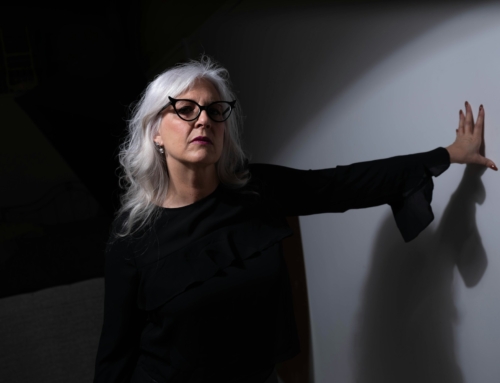 The ability to form attachments with other human beings is an essential skill that typically begins early in life. The parent/caregiver-child relationship is the first crucial relationship that an infant forms. The health of this relationship has a profound effect on the child’s social and emotional development. Attachment disorder is a term that is typically used to describe problems with the emotional attachment that occurs in early childhood.
The ability to form attachments with other human beings is an essential skill that typically begins early in life. The parent/caregiver-child relationship is the first crucial relationship that an infant forms. The health of this relationship has a profound effect on the child’s social and emotional development. Attachment disorder is a term that is typically used to describe problems with the emotional attachment that occurs in early childhood.
While attachment disorder can occur in adults, it is typically seen in young children and is typically treated by mental health professionals with experience in working with children and families.
Types of attachment disorders
There are three main types of attachment disorders we will cover in this article: anxious-insecure, avoidant-insecure, and disorganized-insecure. We will also look at secure attachment, which is something all people have the capability to experience through the help of a qualified counselor.
Anxious attachment disorder
Anxious attachment disorder, also known as ambivalent attachment style, is a type of attachment disorder that can occur in adults. People with anxious attachment styles tend to see themselves and their relationships in a negative light and may have difficulty trusting others and forming close, healthy attachments.
They may also experience intense anxiety in close relationships and may tend to become overly clingy or worry about being abandoned by their partners. Treatment for anxious attachment disorder typically involves therapy to help the person develop healthier attachment patterns and to learn to manage their anxiety in relationships.
Avoidant attachment disorder
 Avoidant attachment disorder is a type of attachment disorder that can occur in adults. People with an avoidant attachment style tend to have a negative view of themselves and their relationships and may have difficulty forming close, healthy attachments with others.
Avoidant attachment disorder is a type of attachment disorder that can occur in adults. People with an avoidant attachment style tend to have a negative view of themselves and their relationships and may have difficulty forming close, healthy attachments with others.
They may also be uncomfortable with intimacy and may avoid physical or emotional closeness with their partners. Avoidant attachment disorder can be treated with therapy that focuses on helping the person develop healthier patterns of attachment and improve their ability to form and maintain close, healthy relationships.
Disorganized attachment disorder
Disorganized attachment disorder is a type of attachment disorder that can occur in children. It is characterized by a lack of a consistent pattern of attachment behavior and may involve a combination of avoidant and anxious attachment styles. Children with a disorganized attachment style may have difficulty forming attachments to caregivers and may exhibit strange or disoriented behavior when interacting with them.
This can include freezing, becoming very still and quiet, or showing signs of fear or confusion. Treatment for adults with disorganized attachment disorder typically involves therapy to help the adult develop healthy patterns of attachment and to improve their ability to form trusting relationships with others.
Secure attachment
Secure attachment is a type of attachment that develops when a child has a strong, healthy relationship with their primary caregiver. Children with secure attachments have a positive view of themselves and their relationships and are typically able to trust others and form close bonds with them.
They are also able to manage their emotions and regulate their behavior in a healthy way. Secure attachment is considered to be the most desirable type of attachment, as it is associated with several positive outcomes, including better social and emotional development and better mental health in adulthood.
ACE scores and attachment
An ACE score, or Adverse Childhood Experiences score, is a measure of the number of adverse experiences that a person has had during their childhood. Adverse experiences can include things like physical, emotional, or sexual abuse; neglect; living with someone who has a mental illness or substance abuse problem; or having a parent who is incarcerated.
 The ACE score is used as a tool to help identify people who may be at increased risk for developing certain health problems, such as heart disease, diabetes, and mental health disorders, due to the impact of adverse childhood experiences on their health.
The ACE score is used as a tool to help identify people who may be at increased risk for developing certain health problems, such as heart disease, diabetes, and mental health disorders, due to the impact of adverse childhood experiences on their health.
The higher your ACE score is, the more likely it will be that you will have an attachment disorder. When children experience stressful events, their bonds of attachment can weaken. However, you can work with a trained counselor to begin rebuilding those attachment bonds in adulthood.
Overcoming attachment disorder in adults.
Overcoming avoidant attachment disorder can be a challenging process, but it is possible with the right support and treatment. A person with avoidant attachment disorder can work with a therapist or counselor to learn healthy ways of coping with their avoidance and to develop healthier patterns of attachment.
In addition to therapy, there are also some self-help strategies that a person can use to overcome avoidant attachment disorder, such as practicing mindfulness, engaging in regular exercise and healthy eating, and building a support network of friends and family members.
It may also be helpful for the person to gradually expose themselves to situations that make them uncomfortable to build up their tolerance for intimacy and emotional closeness. This is often referred to as exposure therapy.
Healthy patterns of attachment involve the ability to form close, trusting, and secure relationships with others. People with healthy patterns of attachment tend to have a positive view of themselves and their relationships and can trust others and form close bonds with them. They are also able to manage their emotions and regulate their behavior in a healthy way.
Healthy patterns of attachment are associated with several positive outcomes, including better social and emotional development and better mental health in adulthood. Developing healthy patterns of attachment typically involves support from caregivers, parents, or other significant adults during childhood, as well as therapy and other interventions to help address attachment issues that may arise later in life.
Counseling for attachment disorder in adults.
 Counseling can be an effective treatment for attachment disorders. A counselor or therapist who is experienced in working with attachment issues can help a person with an attachment disorder to understand their attachment style and how it affects their relationships.
Counseling can be an effective treatment for attachment disorders. A counselor or therapist who is experienced in working with attachment issues can help a person with an attachment disorder to understand their attachment style and how it affects their relationships.
This can involve a variety of different therapeutic approaches, such as cognitive-behavioral therapy, psychodynamic therapy, or family therapy. The specific approach used will depend on the individual’s needs and goals.
Group therapy can be an effective treatment for attachment styles. Group therapy allows people with similar attachment styles to come together and discuss their experiences and challenges in a safe and supportive environment. A trained therapist can facilitate the group and help members to understand their attachment styles and how they affect their relationships.
Group therapy can also provide opportunities for members to practice healthy ways of relating to others and to develop healthier patterns of attachment. Some common approaches to group therapy for attachment styles include cognitive-behavioral therapy, psychodynamic therapy, and family systems therapy.
Counseling for your attachment disorder.
If you are looking for help with an adult attachment disorder, a caring Christian counselor can lead you on your journey toward better relationships and improved mental health. A Christian counselor will use biblical principles while speaking to you about your past experiences as well as your current relationship challenges. Your counselor will pray for you and encourage you as you get stronger.
When you meet with a Christian counselor for attachment disorder, the counselor will ask many questions about your childhood to get a full picture of your experiences. Then your counselor will talk about your current struggles and help you recognize the links between the problems of today and the dysfunction of your past. You will gain new insight into what may have been troubling you for years, yet you never learned how to manage on your own.
To get the help you need, contact a Christian counselor today who specializes in helping people overcome attachment disorders. A counselor is ready to work with you on whatever problems you are facing today. You will learn how to break free from the past and step into the bright new future God has in store for you. Reach out to us today to schedule your first appointment.
“Mountain”, Courtesy of Erik Adair, Unsplash.com, CC0 License; “Clover”, Courtesy of Anna Tsukanova, Unsplash.com, CC0 License; “Snowy Mountains”, Courtesy of Mario Esposito, Unsplash.com, CC0 License; “Morning Coffee”, Courtesy of Polina Kuzovkova, Unsplash.com, CC0 License










